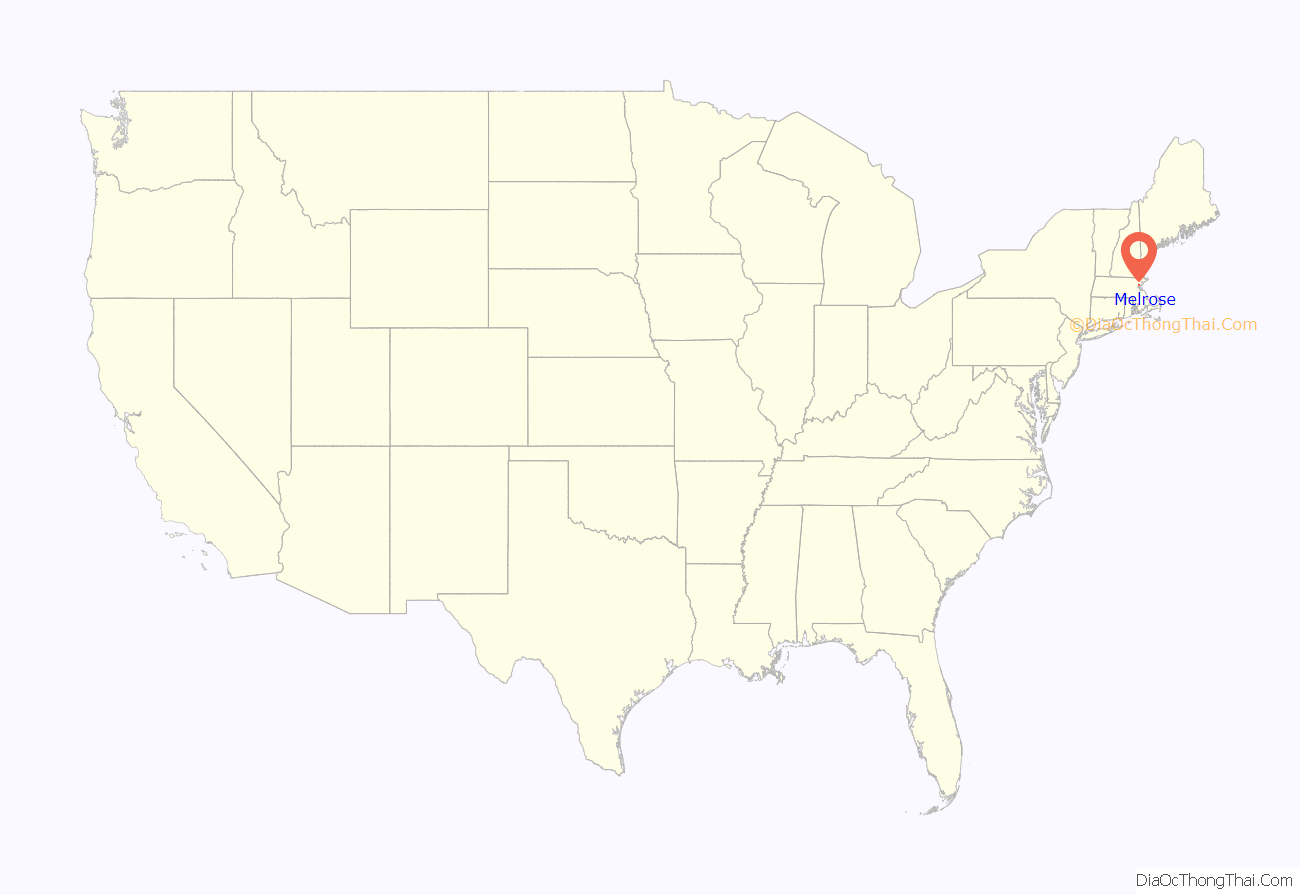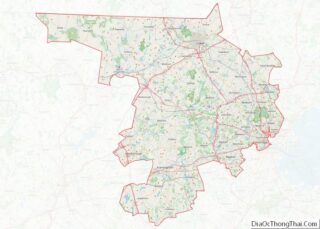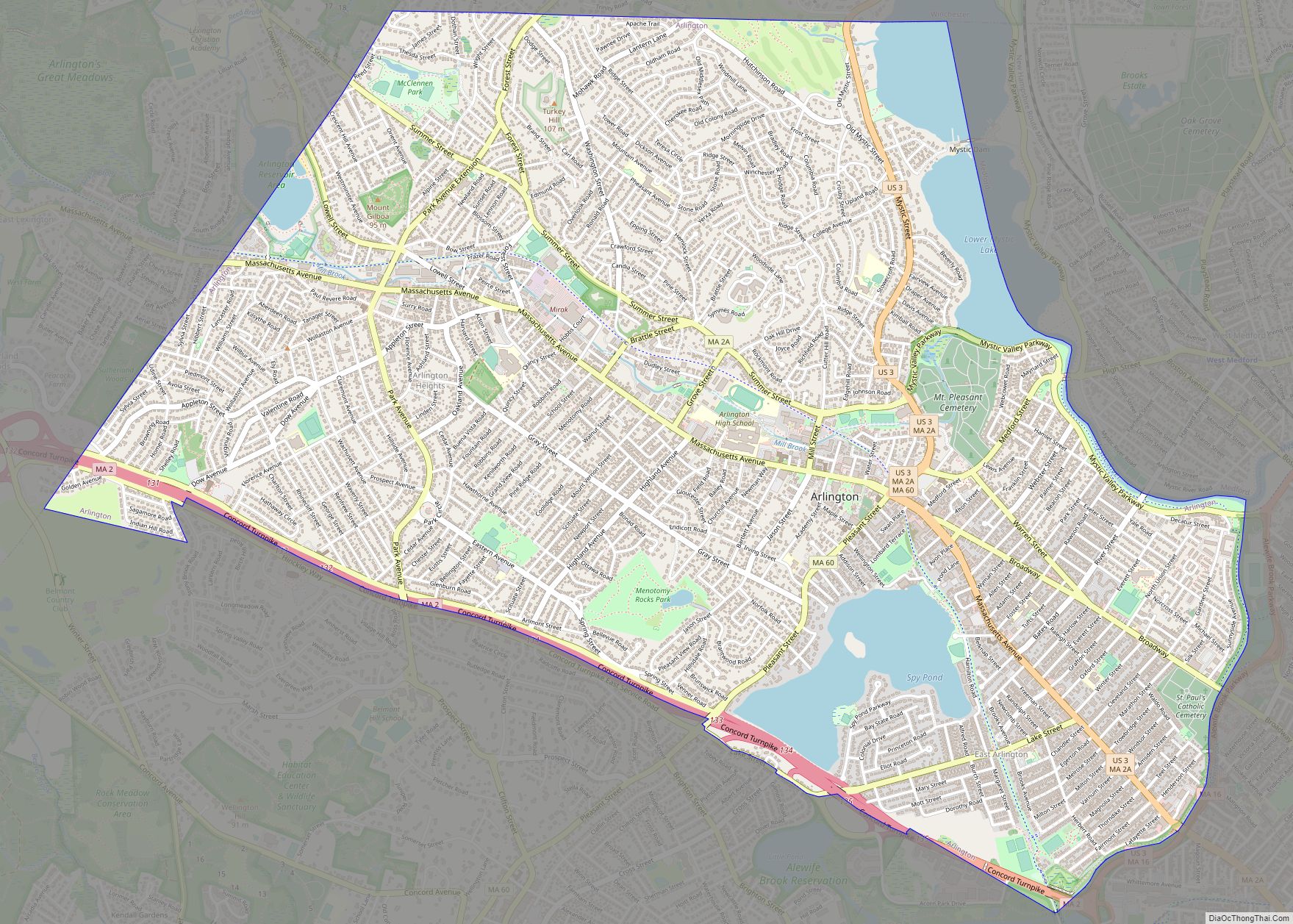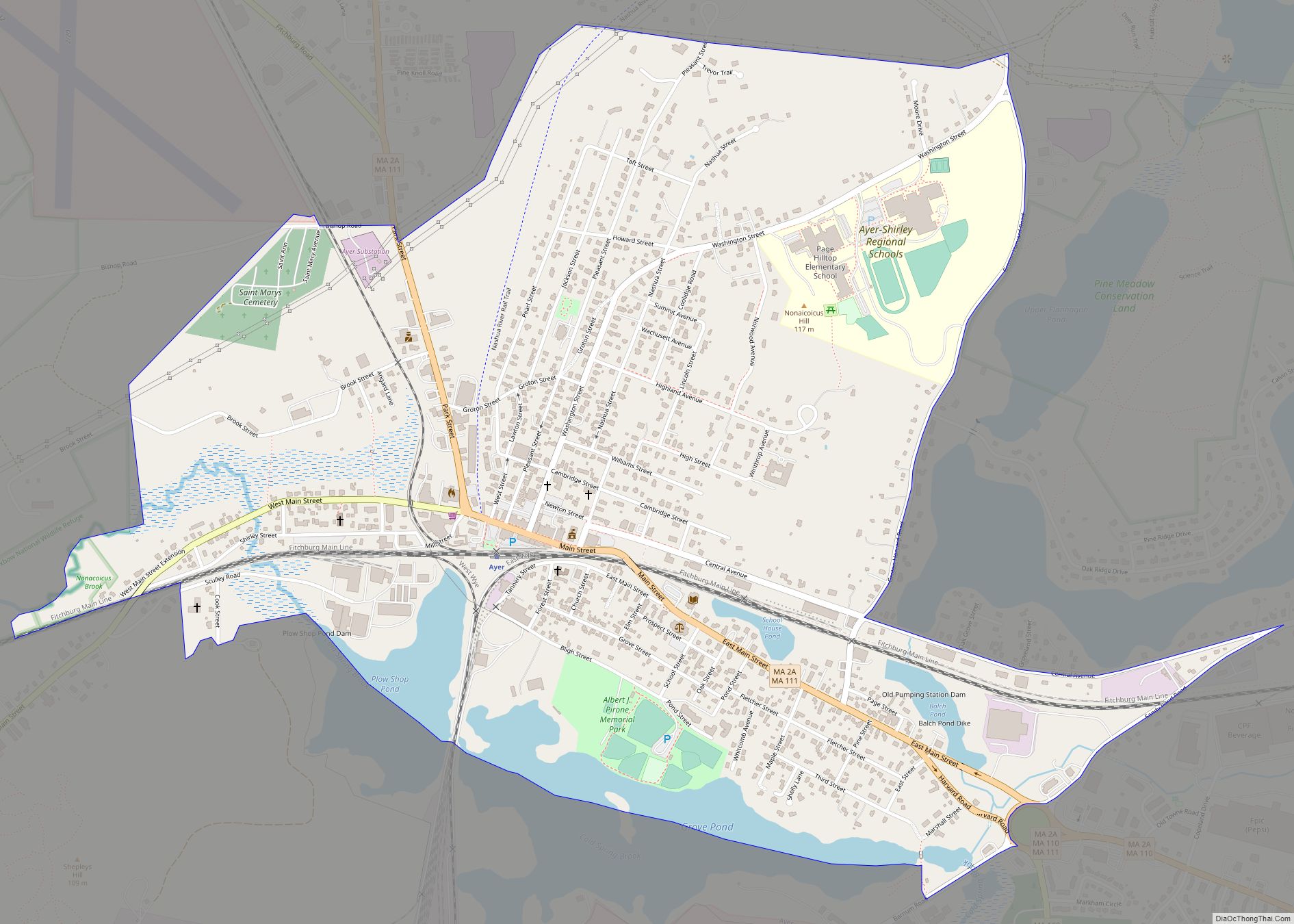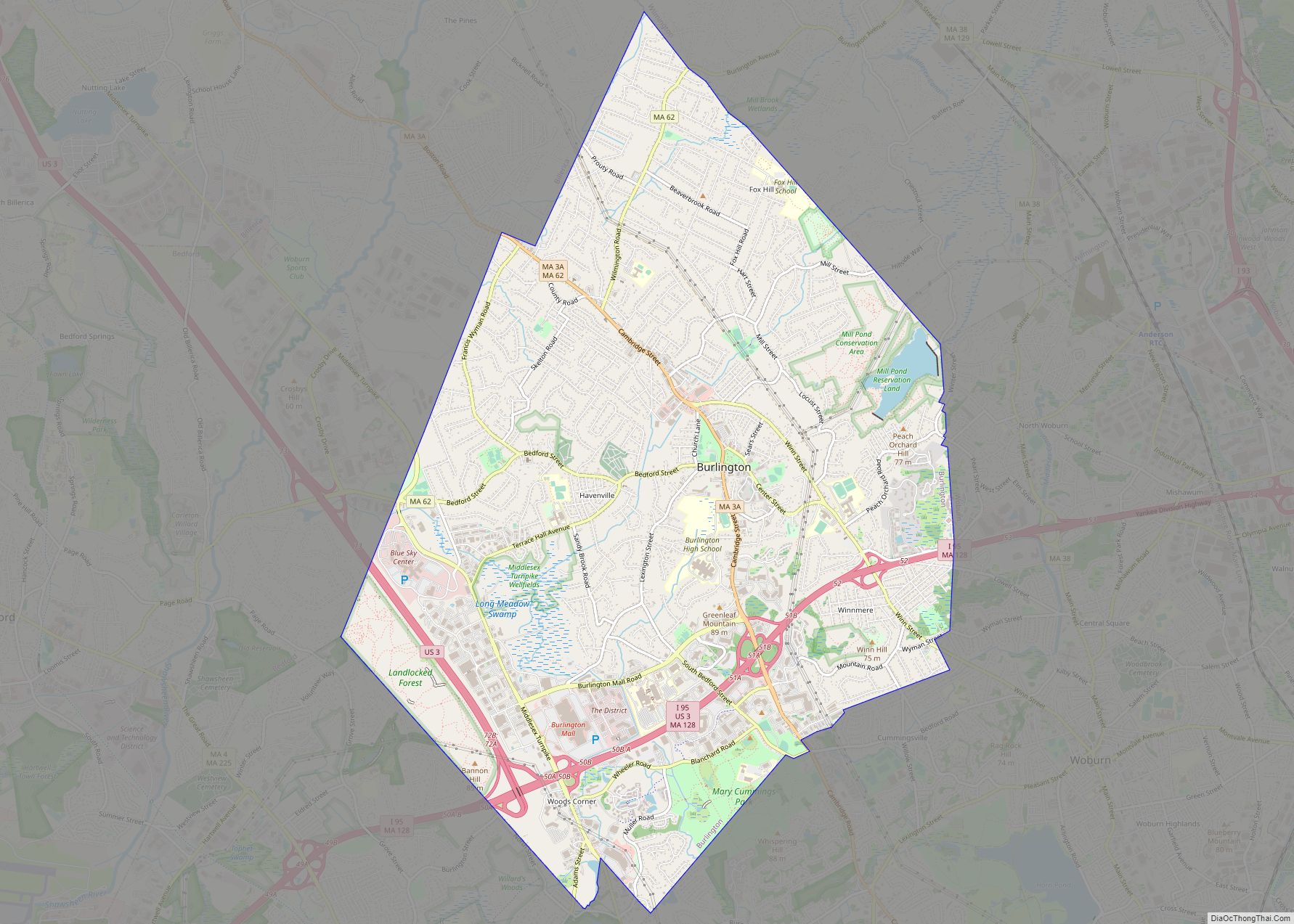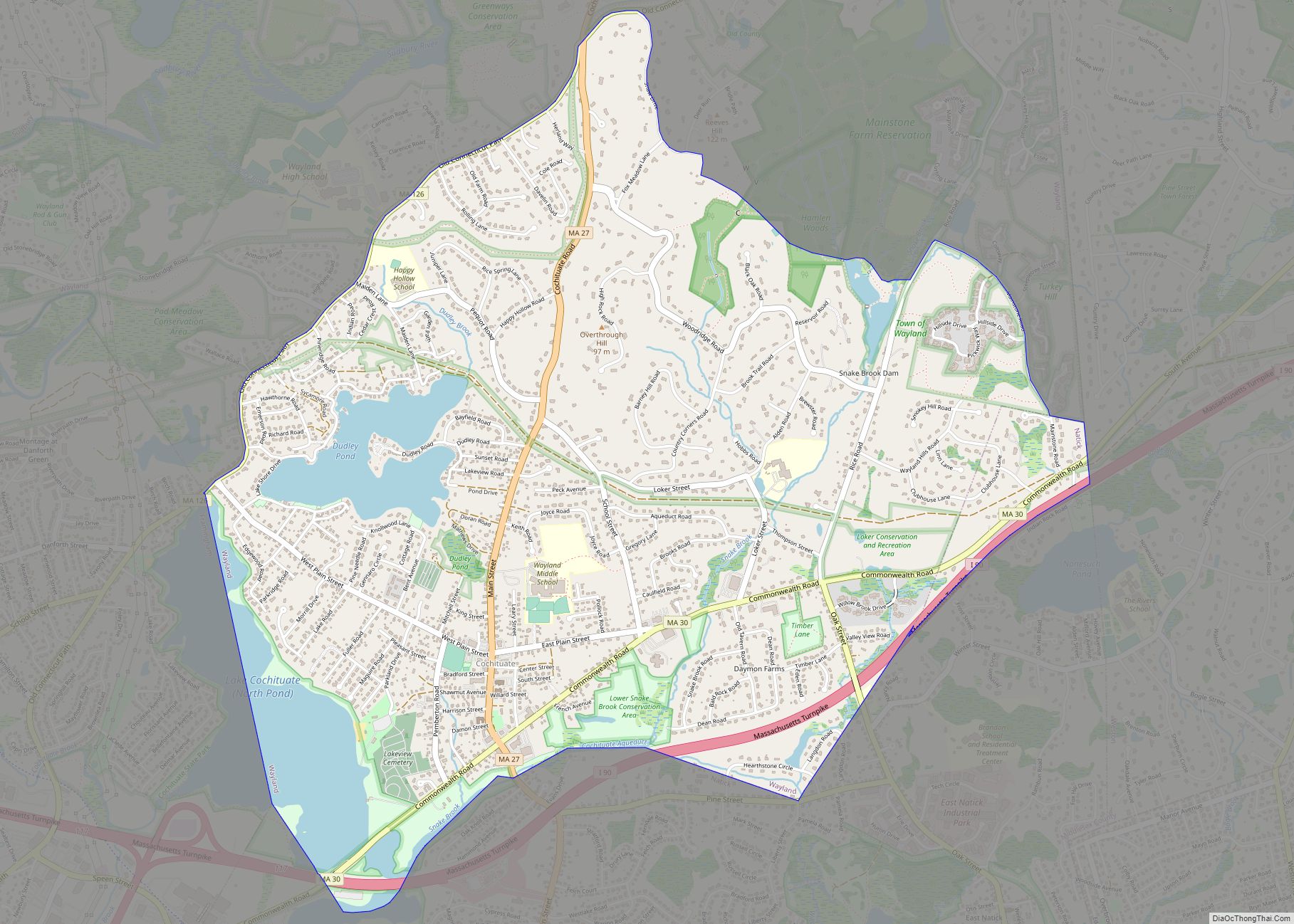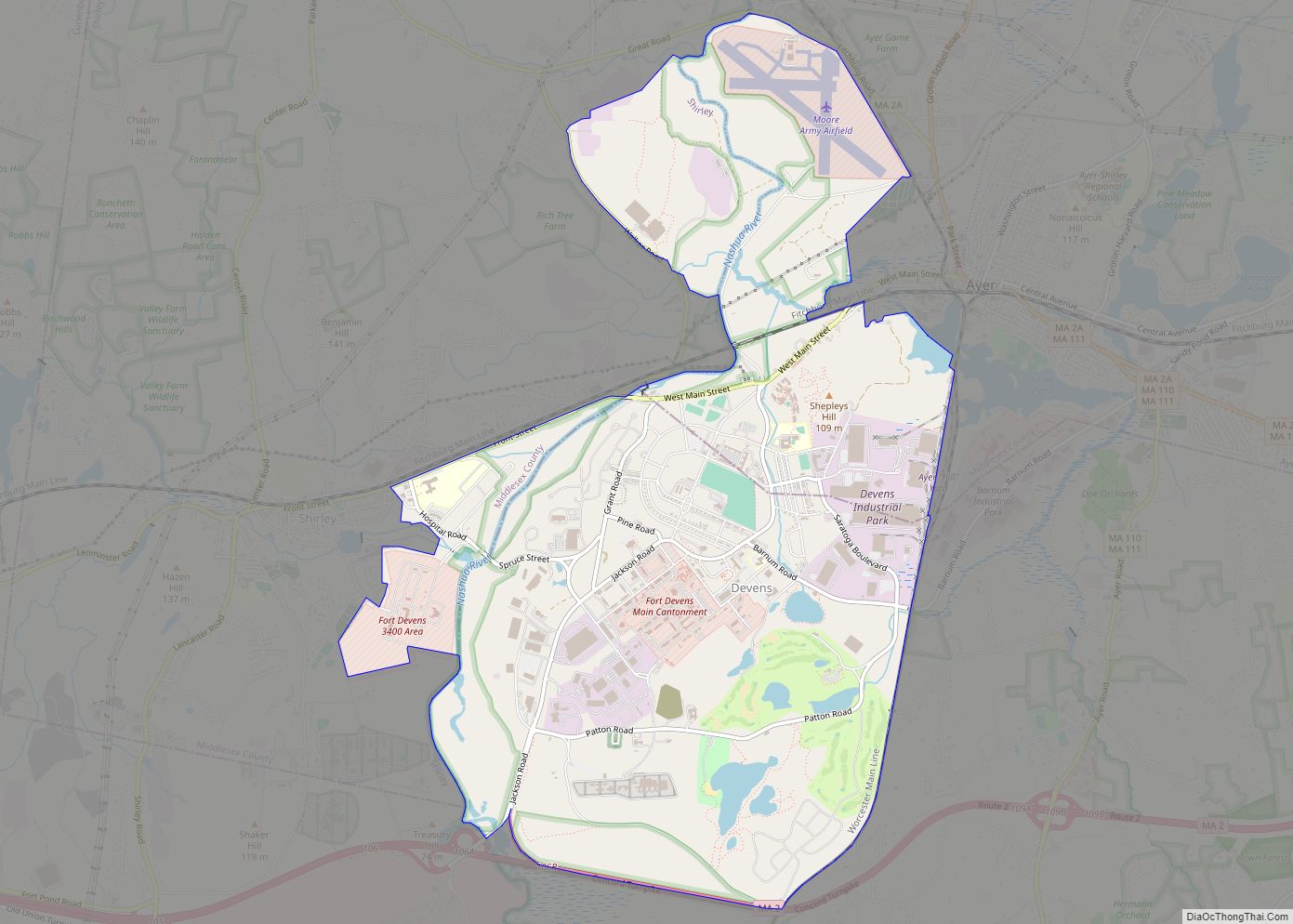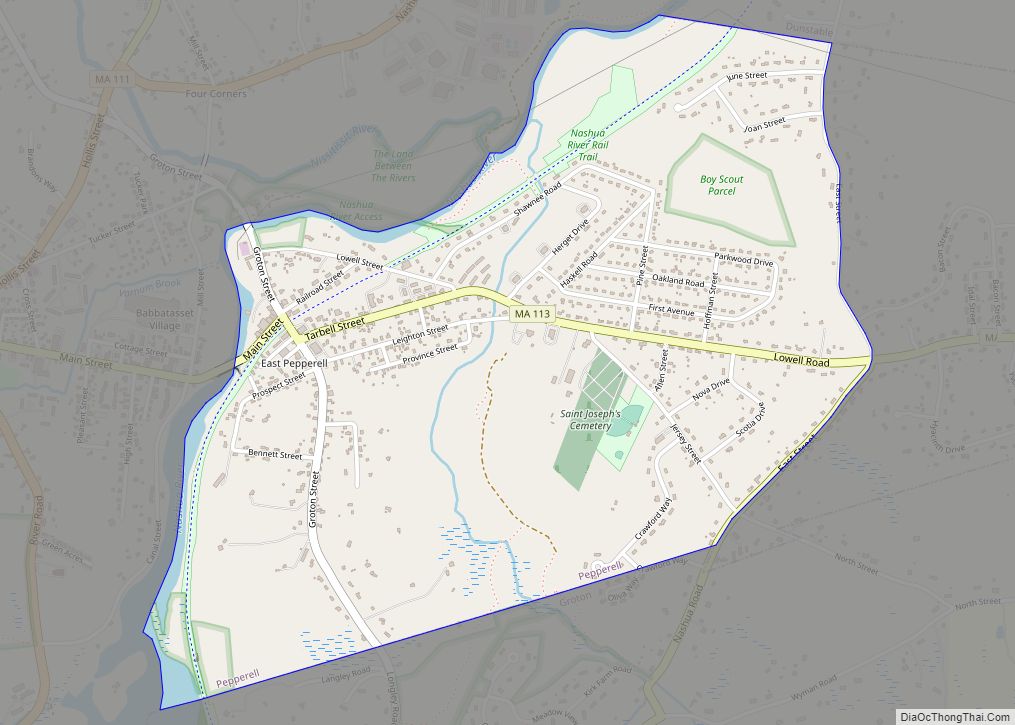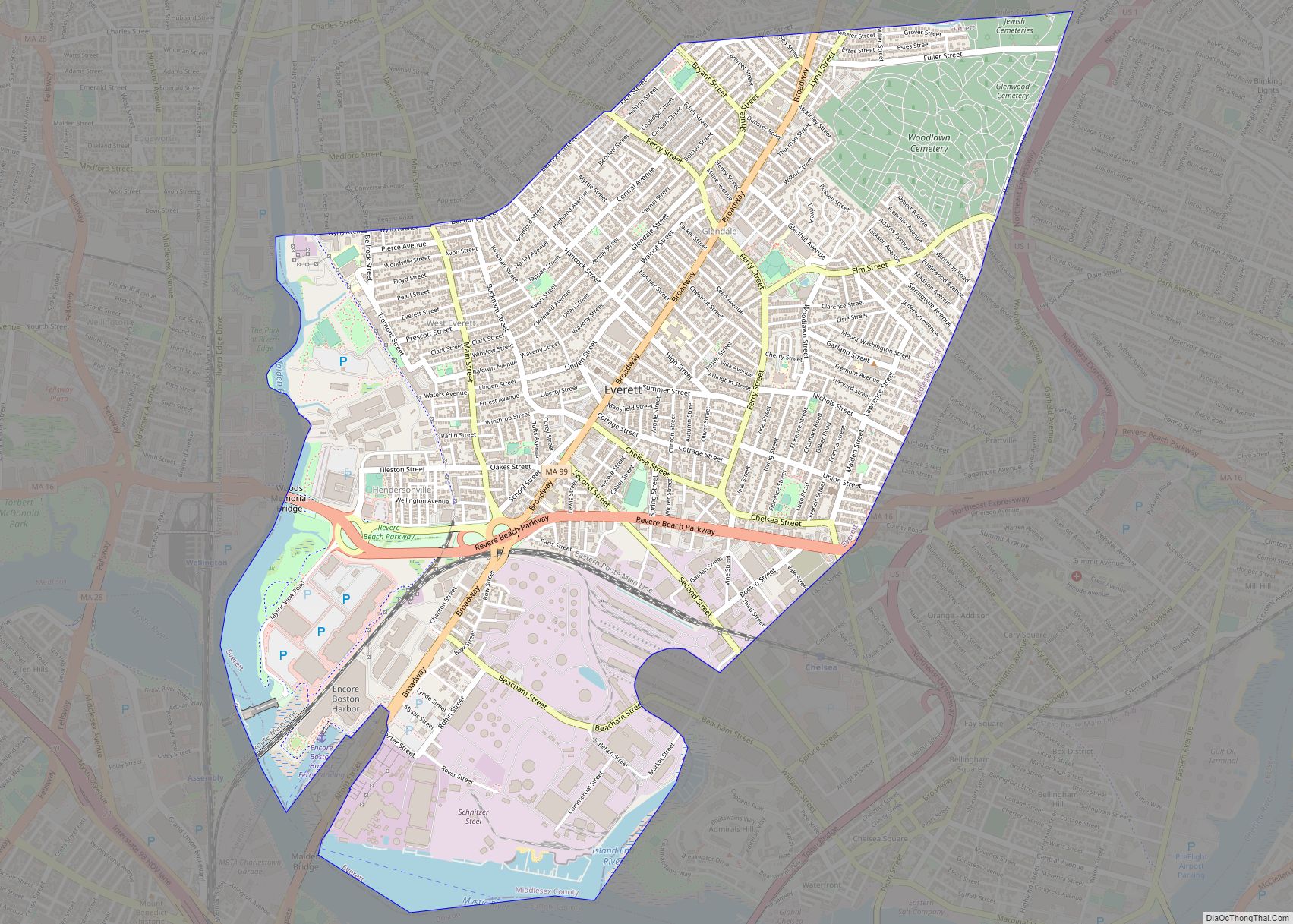Melrose is a city located in the Greater Boston metropolitan area in Middlesex County, Massachusetts, United States. Its population, per the 2020 United States Census, is 29,817. It is a suburb located approximately seven miles north of Boston. It is situated in the center of the triangle created by Interstates 93, 95 and U.S. Route 1.
The land that comprises Melrose was first settled in 1628 and was once part of Charlestown and then Malden. It became the Town of Melrose in 1850 and then the City of Melrose in 1900.
| Name: | Melrose city |
|---|---|
| LSAD Code: | 25 |
| LSAD Description: | city (suffix) |
| State: | Massachusetts |
| County: | Middlesex County |
| Incorporated: | 1850 |
| Elevation: | 133 ft (41 m) |
| Total Area: | 4.77 sq mi (12.35 km²) |
| Land Area: | 4.68 sq mi (12.13 km²) |
| Water Area: | 0.09 sq mi (0.22 km²) |
| Total Population: | 29,817 |
| Population Density: | 6,365.71/sq mi (2,458.07/km²) |
| ZIP code: | 02176 |
| Area code: | 339/781 |
| FIPS code: | 2540115 |
| GNISfeature ID: | 0612780 |
| Website: | www.cityofmelrose.org |
Online Interactive Map
Click on ![]() to view map in "full screen" mode.
to view map in "full screen" mode.
Melrose location map. Where is Melrose city?
History
Melrose was originally called “Ponde Fielde” for its abundance of ponds and streams or “Mystic Side” because of its location in a valley north of the Mystic River. The area was first explored by Richard and Ralph Sprague in 1628 and became part of Charlestown in 1633 along with a large area of land encompassing most of the surrounding communities.
In 1649, the neighborhood of Charlestown known as Malden was incorporated as a separate town; the new town of Malden included most of present-day Melrose (then called North Malden) within its borders. North Malden largely remained a lightly populated farming community. By 1845, the Boston and Maine Railroad had built three stops (now the commuter rail stations of Wyoming Hill, Melrose/Cedar Park, and Melrose Highlands). Boston workers in search of a country atmosphere moved to the area and began commuting to work. The population of North Malden began growing, and in 1850 North Malden split from Malden proper and was incorporated as the town of Melrose. The town then annexed the highlands from neighboring Stoneham in 1853, creating the city’s current borders. The name “Melrose” comes from the burgh of Melrose, Scotland. It was a reference to the Eildon hills of Melrose, Scotland, which the new town resembled. The name was suggested and advocated for by William Bogle, a Scotland native and longtime resident of North Malden.
The population of Melrose continued to grow throughout the second half of the nineteenth century. Farmland was increasingly partitioned into smaller parcels for residences and businesses. The fire department and the town’s school district were founded, and the town hall was built in 1873. In 1899, the City of Melrose became the 33rd incorporated city in Massachusetts. Levi S. Gould became the city’s first mayor on January 1, 1900. Melrose reached a peak in a population of 33,180 residents in 1970, before beginning a slow decline continuing through 2010. On April 1, 1982, Downtown Melrose was added to the National Register of Historic Places; the public library was similarly added to the register in 1988.
Melrose Road Map
Melrose city Satellite Map
Geography
Melrose is located at 42°27′33″N 71°3′44″W / 42.45917°N 71.06222°W / 42.45917; -71.06222 (42.459045, −71.062339).
According to the United States Census Bureau, the city has a total area of 4.8 square miles (12 km), of which 4.7 square miles (12 km) is land and 0.1 square miles (0.26 km), or 1.26%, is water. The city’s largest body of water is Ell Pond, situated near the center of the city, while other major bodies are Swains Pond and Towners Pond, located on the east side near Mount Hood Golf Club.
Melrose is approximately 7 miles (11 km) north of Boston, Massachusetts. It borders four cities and towns: Malden, Saugus, Stoneham, and Wakefield. Major geographic features include Ell Pond, Swains Pond, Sewall Woods, Mount Hood, Boston Rock, Pine Banks Park, and the eastern reaches of the Middlesex Fells Reservation.
The writer Elizabeth George Speare, who was born in Melrose, wrote of her hometown: “Melrose was an ideal place in which to have grown up, close to fields and woods where we hiked and picnicked, and near to Boston where we frequently had family treats of theaters and concerts.”
Neighborhoods
- Cedar Park
- Downtown Melrose
- East Side
- Horace Mann
- Melrose Highlands
- Mount Hood
- Oak Grove/Pine Banks
- Wyoming
The Gazebo at Ell Pond Park
The neighborhoods of Melrose
See also
Map of Massachusetts State and its subdivision: Map of other states:- Alabama
- Alaska
- Arizona
- Arkansas
- California
- Colorado
- Connecticut
- Delaware
- District of Columbia
- Florida
- Georgia
- Hawaii
- Idaho
- Illinois
- Indiana
- Iowa
- Kansas
- Kentucky
- Louisiana
- Maine
- Maryland
- Massachusetts
- Michigan
- Minnesota
- Mississippi
- Missouri
- Montana
- Nebraska
- Nevada
- New Hampshire
- New Jersey
- New Mexico
- New York
- North Carolina
- North Dakota
- Ohio
- Oklahoma
- Oregon
- Pennsylvania
- Rhode Island
- South Carolina
- South Dakota
- Tennessee
- Texas
- Utah
- Vermont
- Virginia
- Washington
- West Virginia
- Wisconsin
- Wyoming
